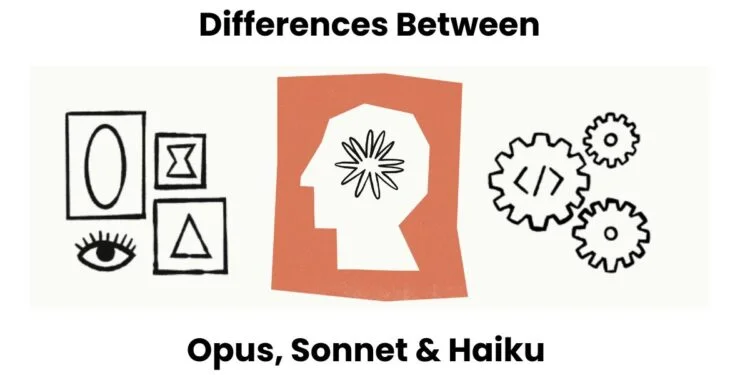The AI platform Anthropic has recently launched a right-sized LLM for any task. The Claude 3 family of models offers the best combination of speed and performance for enterprise use cases, at a lower cost than other models on the market. The family includes three state-of-the-art models in ascending order of capability: Claude 3 Haiku, Claude 3 Sonnet, and Claude 3 Opus.
Read this article to understand the key differences between the Claude 3 Family, Opus, Sonnet, and Haiku.
What is Claude 3 by Anthropic?
Claude 3, developed by Anthropic, is a text-based AI chatbot that generates content and engages in conversations much like we humans do. It excels at tasks demanding rapid responses, like knowledge retrieval or sales automation. The Claude 3 models have sophisticated vision capabilities on par with other leading models. They can process a wide range of visual formats, including photos, charts, graphs, and technical diagrams. The three models are:
Haiku: Our fastest model that can execute lightweight actions, with industry-leading speed.
Sonnet: Our best combination of performance and speed for efficient, high-throughput tasks.
Opus: Our most intelligent model, which can handle complex analysis, longer tasks with multiple steps, and higher-order math and coding tasks.
Anthropic Claude 3 Opus vs Sonnet vs Haiku: Key Differences
All Claude 3 models by Anthropic show increased capabilities in analysis and forecasting, nuanced content creation, code generation, and conversing in non-English languages like Spanish, Japanese, and French.
| Specifications | Opus | Sonnet | Haiku |
| Cost [Input $/million tokens | Output $/million tokens] | $15 $75 | $3 $15 | $0.25 $1.25 |
| Context window | 200K* | 200K | 200K |
| Differentiator | Higher intelligence than any other model available. | More affordable than other models with similar intelligence; and better for scale. | Smarter, faster, and more affordable than other models in its intelligence category. |
Anthropic Claude 3: Price, Availability, Language Model, and Key Features
What are the differences between Opus, Sonnet and Haiku of Claude 3 Model?
Claude 3 Opus is considered one of the most intelligent models. It can navigate open-ended prompts and sight-unseen scenarios with remarkable fluency and human-like understanding. Opus shows us the outer limits of what’s possible with generative AI. This AI tool can plan and execute complex actions, research reviews, brainstorming, and advanced analysis of charts & graphs, financials and market trends, and forecasting.
Claude 3 Sonnet model strikes the ideal balance between intelligence and speed, particularly for enterprise workloads. It delivers strong performance at a lower cost compared to its peers and is engineered for high endurance in large-scale AI deployments. Also, this highly affordable model masters in data processing, and product recommendations, along with time-saving tasks, including code generation, quality control, and parsing text from images.
Claude 3 Haiku is the fastest, most compact model for near-instant responsiveness. It answers simple queries and requests with unmatched speed. Users will be able to build seamless AI experiences that mimic human interactions. This Claude 3 model gives quick and accurate support in live interactions, catches risky behaviour or customer requests, and optimizes logistics even from unstructured data.
What to choose from the Claude 3 model?
Each successive model offers increasingly powerful performance, allowing users to select the optimal balance of intelligence, speed, and cost for their specific application. So, the choice completely depends on individual requirements.
With the release of our API, which is now publicly accessible, developers can now sign up and use Opus and Sonnet right away. Sonnet powers claude.ai’s free experience, while Claude Pro subscribers can access Opus. Haiku will be accessible shortly.
Along with Sonnet, Opus and Haiku are soon to be available on both Google Cloud’s Vertex AI Model Garden and Amazon Bedrock, where Sonnet is currently accessible in private preview.
Anthropic Claude 3 vs ChatGPT 4 vs Gemini Ultra 1.0: What are the Key Differences?

















